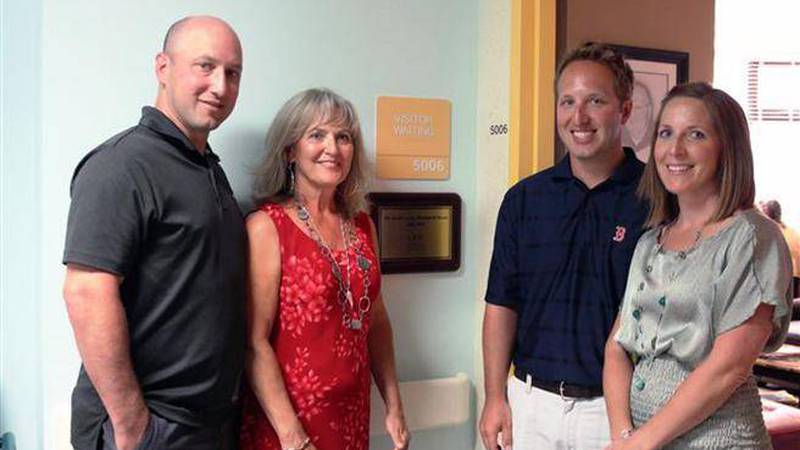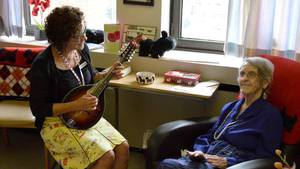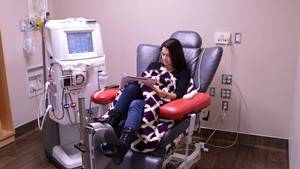Furniture was the last thing on Linda Burkhardt’s mind when she rushed to the intensive care unit to be with her husband Jerry.
But his first stay in hospital lasted six months, and he had to return for a second six-month stay. Linda left their Cumberland County home to stay with friends in Halifax, but ended up spending many nights at Jerry’s side in the ICU. She found a measure of privacy in the family crisis rooms.
“It was just a couch. They always gave me a pillow and a blanket, but it wasn’t really geared for doing that,” she says.
Staff put a “do not disturb” sign on the door to give her some rest. They helped her as much as they could, but Linda realized with no cutlery, coffee machine or comfortable furniture, it could make a tough time even tougher.
“I said: ‘my goodness, if I’m doing this, everybody else is doing the same thing,’ because it’s a hospital that treats the whole Maritimes,” she says.
After Jerry died in 2010, Linda and her family decided to fix up the crisis room in the QEII’s Halifax Infirmary in his honour, to help other families. Memorial donations along with her family’s donation were used to update and refurnish the room. A few comfort items were also added.
To personalize and add a little bit of Jerry to the room, wild blueberry pictures and a drawn portrait of her husband were added. She also added special quotes, which gave strength to her family while they were in crisis. One came from a nurse who whispered to Jerry during his ordeal: ‘Jerry, you’re tougher than a woodpecker’s beak.’
Since then, she’s heard from many people who found comfort in “Jerry’s room.”
“That made us feel good,” Linda says.
Unfortunately, the family crisis rooms are regularly used and wear down quickly. “It all has to be replaced again. We’re doing that now,” Linda says.
Karen Webb-Anderson, critical care quality leader, and Cynthia Isenor, a registered nurse and health services manager, say updating the crisis rooms is an important task. In addition to the help from Linda’s family, they recently received a QEII Foundation Comfort and Care Grant to refurnish the rooms. Comfort & Care Grants are intended for projects that typically would not receive funding from the operating or capital budgets. Grants are awarded for projects that demonstrate direct benefit or enhancement of care to patients and/or families.
“One of our important fundamentals is really about family-centred care,” Cynthia says. “Making sure that as part of their care routine, families are provided with a comforting environment while their loved one is here in our ICU.”
Karen says all of the furniture will be updated. “We recognized the excellent care we’re providing to patients, and the care we try to provide to the families — that environment wasn’t communicating that we really do care for families as well.”
ICU patients are in an open environment, with glass walls facing a central desk staffed by nurses and doctors. The small rooms are full of medical machines. That means families can’t stay for long periods and can’t come and go as they please. As many are coming from across the Maritimes, they also often don’t have a place to take a break or fix a snack.
On top of that, the ICU is open 24 hours a day, adding to the bustle.
In the coming months, two family crisis rooms will be refurnished with new sofas, love seats, chairs and coffee tables. “We’re able to really capitalize on those funds to ensure families are provided with that comfort they need,” Cynthia says. “Ensuring families have a safe, quiet and clean environment they can go to in times of crisis — it helps provide them with an added layer of security and comfort.”








